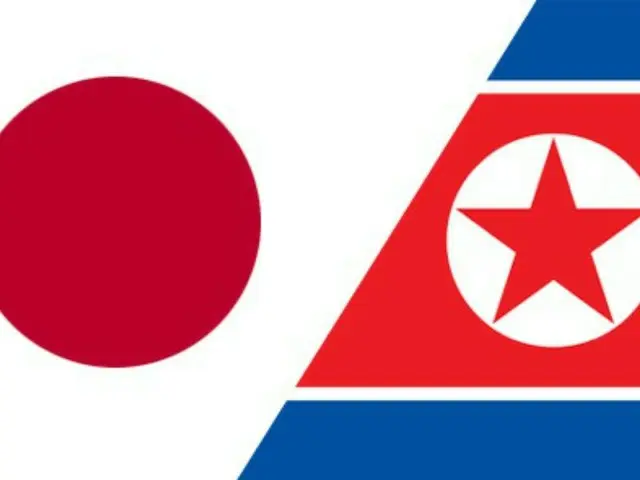The return of the victims, including Mr. Sanae, to Japan has yet to be realized. Prime Minister Sanae Takaichi, who took office in October, said, "I want to make a breakthrough during my term," and has called for an early meeting with North Korean leader Kim Jong-un.
On November 15, 1977, Megumi, then a first-year junior high school student, was attacked by a North Korean agent on her way home from school after club activities.
His mother, Sakie (89), said at a press conference on the 11th of this month, "I'm exhausted and I sometimes wonder if I'll ever see him again."
He continued, "I have been praying for something to be done quickly, and have been asking for it every time the prime minister changes, but nothing has happened," and "Even after the Japan-North Korea summit meeting,
"I believe that unless we can get ahold of them and hold talks, nothing will move forward," he said, calling for the early realization of talks that have not been held since 2004. His younger brother, Takuya, who is the representative of the Association of Families of Victims Kidnapped by North Korea, said:
"With my family aging, I don't have time," he complained. The first Japan-North Korea summit took place on September 17, 2002, when then Prime Minister Junichiro Koizumi visited North Korea.
The Secretary (at the time) acknowledged the abductions and apologized. He announced that five of the abductees were alive and eight others, including Megumi, had died. At the meeting, the two leaders exchanged the "Japan-North Korea Pyongyang Declaration." In the declaration, the two leaders expressed their sincere condolences for the unfortunate events that had occurred between Japan and North Korea.
They confirmed their common understanding that settling past records, resolving outstanding issues, and establishing fruitful political, economic, and cultural relations will be in line with the basic interests of both sides and contribute to peace and stability in the region.
The declaration included calls for the resumption of normalization negotiations, an apology by Japan for its colonial rule, and North Korea to abide by its promise to resolve the nuclear issue.
The following month, five of the abduction victims returned to Japan. Then, in 2004, Koizumi visited North Korea again and met with the families of five of the abduction victims.
However, since then, the abduction issue has been at a standstill for a long time. In 2014, the Japanese and North Korean governments agreed to a reinvestigation of the abduction victims by North Korea and a partial lifting of Japan's independent sanctions.
The Stockholm Agreement, which included the removal of the North Korean nuclear program, was announced. North Korea established a special investigation committee, but went ahead with a nuclear test and missile launch in 2016. Following Japan's strengthened unilateral sanctions, North Korea
The US declared the dissolution of the committee, and the Stockholm Agreement also fell apart, despite hopes of progress. At the US-North Korea summits in June 2018 and February 2019, US President Trump raised the abduction issue, but North Korea
North Korea has not taken any concrete action. Since five abduction victims returned to Japan in 2002, not a single one has been returned.
As mentioned above, North Korea has declared Megumi dead, but
There was no evidence to support this, and what North Korea later produced as Megumi's "remains" was found through DNA testing to be those of a different person.
The Takaichi Cabinet, which was formed last month, has positioned the abduction issue as a "top priority."
On the 3rd, Takaichi attended a national rally calling for the return of North Korean abductees held in Tokyo, and revealed that she had requested a summit meeting with North Korea.
I intend to face these issues head-on, take the lead myself, and act boldly in response to various situations in order to achieve concrete results. I will not rule out any options, and I will do whatever I can to achieve them in my generation.
On the other hand, in March last year, Kim Yo-jong, the younger sister of Kim Jong-il, issued a statement saying, "We will not cooperate with the Japanese side in any way."
"We will ignore and reject any contact or negotiations," he said. This was the last public response, but according to a report by North Korea's Korean Central News Agency, on the 12th of this month, North Korea announced that it had "denied the 'enemy of a millennium'."
A history department discussion was held to "expose and condemn a certain Japanese crime from long ago." According to the Korean media, E-Daily, the participants of the discussion denounced Japan's former colonial rule.
"Even as time passes and generations change hundreds or thousands of times, the historical wounds inflicted on our people by our thousand-year-old enemy, the Japanese Empire, will never heal, and we must pay the price of blood revenge a thousand times over."
E-Daily reported, "This debate is attracting attention as it was held after Prime Minister Sanae Takaichi called on North Korea to hold a summit meeting."
On the 15th, it was 48 years since Megumi was abducted. Chief Cabinet Secretary Minoru Kihara, who also serves as Minister in charge of the Abduction Issue, visited Niigata City on the same day and commemorated the 48th anniversary of Megumi's abduction.
At a prefectural rally calling for the early rescue of the abduction victims, Kihara said, "I will be the last minister in charge of the abduction issue," and "I will do my best to save the lives of all the abduction victims one day."
We will do everything we can to ensure their return home as soon as possible."
2025/11/17 13:37 KST
Copyrights(C)wowkorea.jp 2

